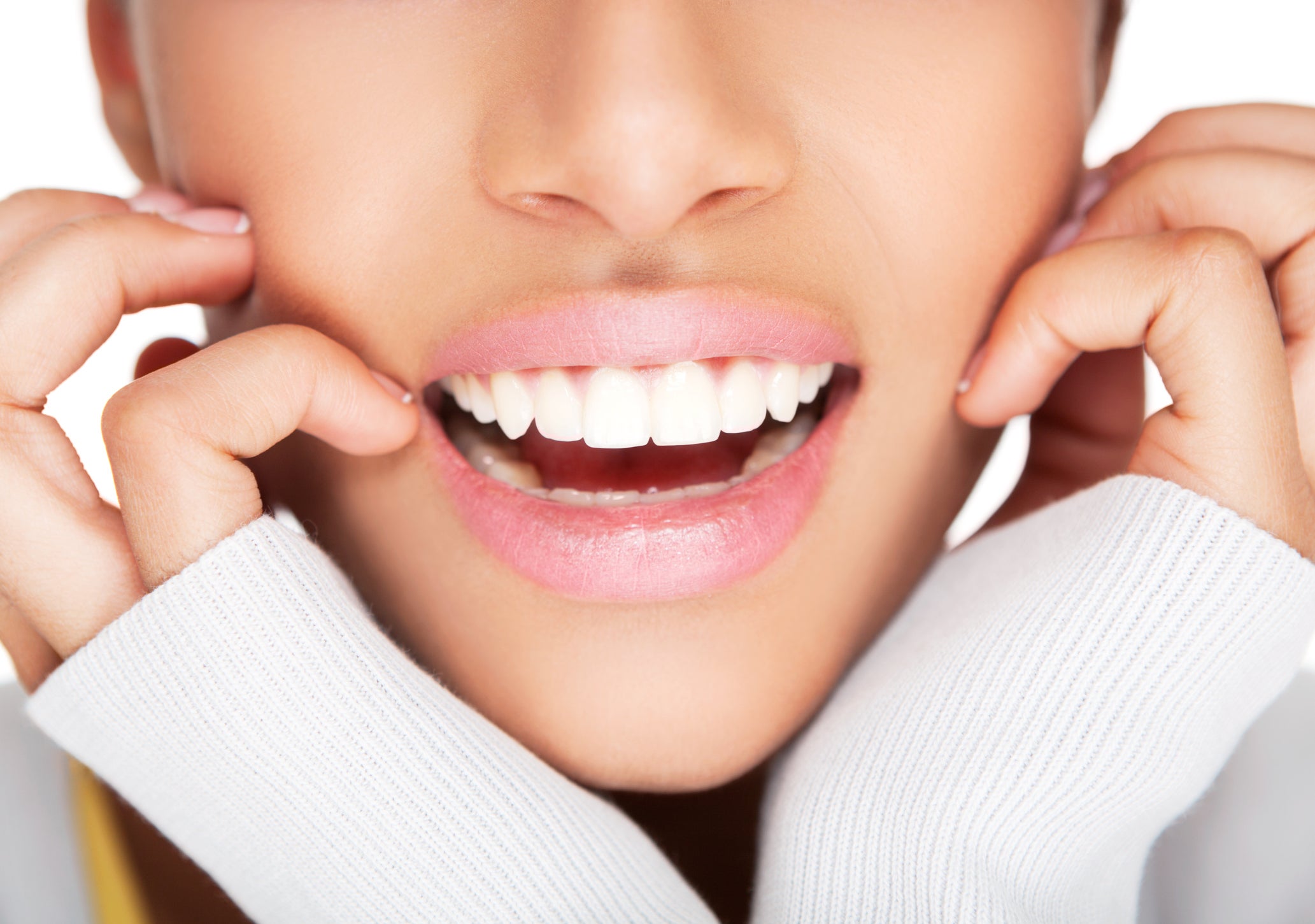-
How Restoring Your Smile Can Help with Your Mental Health

Good oral health affects your overall wellness in many ways. Straight teeth ensure a comfortable bite and help you chew thoroughly. Then, healthy gums can help stave off other complications, including stroke, diabetes, and heart disease. But have you ever considered how restoring your smile can improve your mental health? The psychological impacts of a beautiful smile can’t be ignored.
Greater Self-Confidence
If you feel self-conscious about crooked, chipped, or stained teeth, you may often cover your mouth with your hand or maintain a tight-lipped smile. Correcting any problems with your teeth and gums generates a wave of self-confidence. This encourages you to smile, laugh, and communicate without underlying anxiety about people looking at your teeth.
Decreased Risk of Depression
Researchers from Deakin University found a connection between depression and oral health. In short, if you’re experiencing problems with your teeth and gums, your chances of feeling depressed increase. As an inflammatory disorder, depression can be triggered by inflammation in the gums (or elsewhere in the body). This means, if you’re feeling down, you should take a closer look at your oral care routine. Enhancing your dental hygiene could improve your mental health.
Boosted Mood & Physical Health
Scientists and therapists agree—the simple act of smiling has undeniable emotional advantages. It has been demonstrated that flashing a smile releases dopamine, endorphins, and serotonin into the brain, which helps fight off stress and promote feelings of joy. These feel-good neurotransmitters even help lower your heart rate and blood pressure for improved physical health as well.
Better Appearance
A 2011 study found that both men and women are perceived as more attractive when they smile and make eye contact. You are more likely to interact in a friendly manner with those around you if you are confident with the appearance of your smile.
Longer Lifespan
Emotions affect your personality and life outcome by influencing the way you think, behave, and interact with others. People with more positive emotions are happier, have more stable relationships, and are more likely to live longer than people with overwhelmingly negative emotions. It stands to reason that happier people smile more and, as already stated, smiling makes you feel happier. A Wayne State University study from 2009 brings the point home by suggesting that people who smile more intensely tend to have longer lifespans.
Enhanced Ability to Spread Joy
If you have straight, white teeth that you want to show off to the world, you’ll be encouraged to smile more often. As they say, “Smile and the world smiles back.” This phrase comes from the notion that smiling is contagious. When you walk around with a smile on your face, it lifts not only your own mood but also the moods of those around you. This isn’t just common sense—it’s backed up by current research.
Ready to improve your mental health? Start by restoring your smile at Park 56 Dental! Call our NYC dentist at (212) 826-2322 or schedule your appointment online today.
-
How to Reduce Teeth Whitening Pain

Whitening your teeth is a fast, easy way to improve the appearance of your smile. One common side effect is temporary pain and sensitivity to hot and cold drinks. We’re here to help you understand what causes teeth whitening pain and how you can prevent it.
Is Tooth Whitening Safe?
Zoom! whitening is a professional treatment that brightens your smile by an average of eight shades in a single, one-hour visit. While it’s championed as a simple, safe, and pain-free process, some patients still experience temporary hypersensitivity following treatment. If you’re concerned about this, speak with your dentist before having Zoom! whitening performed.
Why Do Teeth Sometimes Hurt After Whitening?
You are most likely to experience discomfort after whitening if you already have sensitive teeth. This is often caused by thin enamel or exposed roots. Both issues leave the underlying layer, known as dentin, vulnerable to the bleaching agent found in teeth whitening products. If the nerve endings here are irritated by the whitening process, you could be left with hypersensitivity for the next 24 to 48 hours.
How to Prevent Teeth Whitening Pain Before Treatment
- Switch to desensitizing toothpaste: One to two weeks prior to your treatment, brush with toothpaste containing 5 percent potassium nitrate to build up a resistance to sensitivity. This substance is known to reduce tooth pain, so it’s a common ingredient in desensitizing toothpaste. Brush before your treatment to clean and prepare the surface of your teeth for whitening.
- Take medicine: Immediately before your whitening appointment, take over-the-counter anti-inflammatory drugs as a proactive measure against tooth sensitivity.
- Apply ACP gel: Request relief ACP desensitizing gel from your dentist. If you have whitening trays at home, dispense a pea-sized amount into each impression and wear the tray for 30 minutes before heading to your professional Zoom! whitening treatment. If you don’t have whitening trays, apply the gel using a toothbrush.
How to Prevent Teeth Whitening Pain After Treatment
- Wait to brush: If you brush your teeth too soon after whitening, you will further expose the dentin, increasing sensitivity. Therefore, you should wait to brush for a couple of hours. When you do, brush extra gently. Use a soft-bristled toothbrush and lukewarm water to take some of the sting out of your sensitive teeth.
- Avoid hot and cold drinks: Hot coffee and ice-cold water could cause pain, so stick with room-temperature beverages for the next 24 to 48 hours. You may also find it helpful to drink through a straw so liquids bypass your teeth for the most part.
- Keep taking medicine and using ACP gel: If you continue to experience sensitivity despite your other efforts, take more anti-inflammatory drugs and reapply the ACP gel after each meal.
Park 56 Dental is proud to offer Zoom! whitening, the fast, easy way to whiten your smile. If you’re interested in scheduling treatment, or you have more questions about tooth sensitivity, please contact us online or by phone at (212) 826-2322.
-
15 Things That Cause Bad Breath

Do you suffer from bad breath, also known as halitosis? In a majority of cases, the odor stems from bacteria in your mouth. Everyone knows that eating onions and garlic can make your breath stink, but these are far from the only culprits. Learn what other things cause bad breath so you can avoid them.
- Citrus fruit: Odor-causing bacteria love acidic environments, so eating lots of citrus fruit invites bad breath to stick around.
- Pasta sauce: Tomatoes are acidic as well, meaning red pasta sauce can contribute to bad breath.
- High-protein diets: The body produces ammonia as a byproduct of breaking down protein. When the odor escapes from your mouth, it causes bad breath.
- High-sugar diets: Because of how sugar interacts with the bacteria in your mouth, eating too many sweets could result in sour breath.
- Peanut butter: Its sticky consistency makes peanut butter difficult for saliva to wash away. As it lingers, bacteria feed, making your breath stink for hours at a time.
- Canned fish: Fishy compounds tend to linger in the mouth, giving off an unsavory smell until you drink water, chew gum, or brush your teeth.
- Cheese: Most dairy products, including cheese, contain amino acids that react with bacteria in your mouth to produce excess hydrogen sulfide. The result is a mouth that smells like rotten eggs.
- Horseradish: Isothiocyanate is a sulfur-containing compound found in all cruciferous vegetables, including horseradish. Mint is the best way to combat the effects of this compound.
- Coffee: Your favorite morning beverage has a drying effect on the mouth, reducing saliva flow and allowing odor-causing bacteria to thrive.
- Alcohol: Excessive alcohol consumption causes dehydration, which can reduce saliva production. This creates a dry environment for foul-smelling bacteria to flourish.
- Tobacco: Smoking or chewing tobacco causes an unpleasant odor in the mouth. Smokers are also more likely to develop gum disease, another source of bad breath.
- Medications: Some prescriptions cause dry mouth, a known cause of halitosis. Other drugs break down in your body, releasing foul-smelling chemicals that can be carried on your breath.
- Infections: Gum disease, tooth decay, mouth sores, or surgical wounds may lead to infections that cause bad breath and an unpleasant taste in your mouth.
- Digestive issues: Chronic digestive distress, acid reflux, and bowel disorders can produce gases that cause halitosis. An inability to digest certain enzymes could also lead to bad breath.
- Poor dental hygiene: The best way to combat almost all sources of bad breath is to brush, floss, and rinse with mouthwash. By maintaining good oral health, you can combat halitosis before it starts.
If your bad breath just won’t go away, you may need help from a dentist to uncover the underlying cause. Please contact Park 56 Dental at (212) 826-2322 to work with one of the top dentists in New York. By providing a thorough dental cleaning, we can help you get rid of bad breath for good!
RECENT POSTS
categories
- Uncategorized
- Cosmetic Dentistry
- Veneers
- Healthier Teeth
- Teeth Whitening
- Dental Health
- Video
- Dental Emergencies
- Invisalign
- Dental Implants
- Root Canal
- Sedation Dentistry
- Infographic
- Dental Crowns and Bridges
- Dental Anxiety
- Gum Disease
- COVID-19
- Bad Breath
- New York Dentist
- Cut out sugar
- General Dentistry
- Oral Health
- Oral Cancer
- Dry Mouth
- Gum Health
- Toothache
- Dental Sealants
- Cavities



